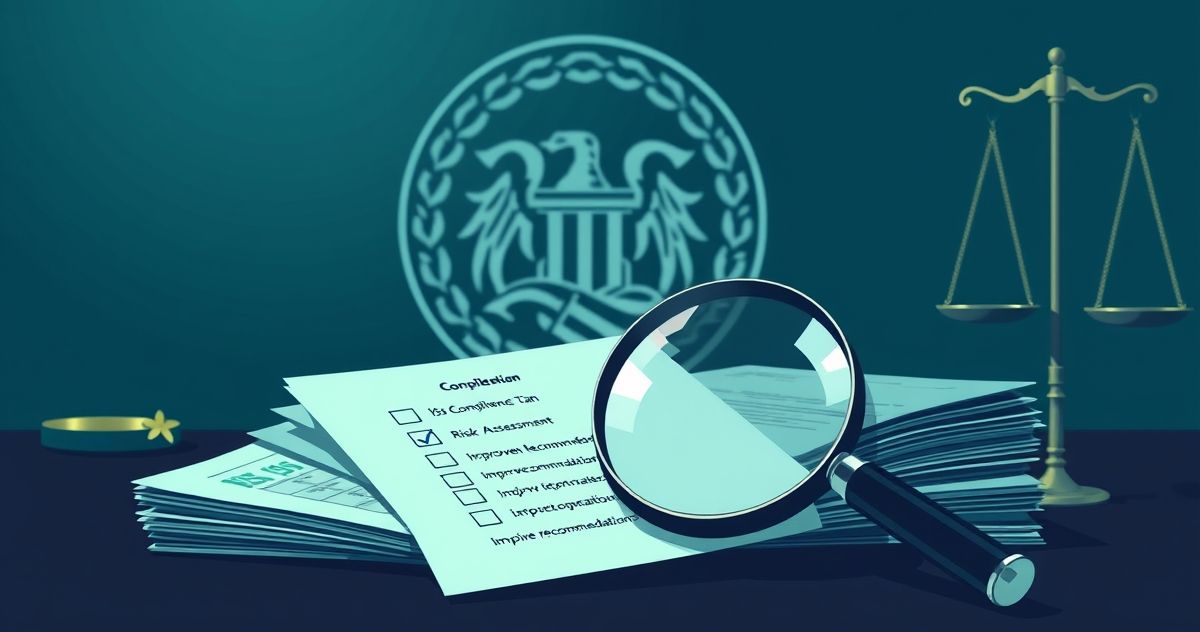Understanding the IRS Compliance Plan Review
The IRS Compliance Plan Review is a crucial aspect of maintaining a taxpayer’s financial and legal obligations in line with existing tax laws. This comprehensive evaluation process helps both individuals and organizations ensure their tax filings and processes adhere to the regulations set forth by the Internal Revenue Service (IRS). Not only does this review process aim to protect the integrity of the tax system, but it also aids taxpayers in identifying areas where they may improve compliance and avoid potential pitfalls.
What is the IRS Compliance Plan Review?
At its core, the IRS Compliance Plan Review is designed to assess the efforts made by taxpayers to comply with tax laws. This review involves an extensive assessment of the taxpayer’s administrative and financial procedures to determine their consistency with requirements set by the IRS. It serves as a proactive measure to identify compliance gaps and recommend necessary actions to enhance adherence to tax laws.
Primary Purpose
The primary purpose of the IRS Compliance Plan Review is to ensure the accuracy and completeness of tax reporting. By conducting a structured examination of records and processes, it aspires to ensure all tax criteria are met, reducing the risk of unintended non-compliance. This plan review is integral in offering taxpayers insights into their current standing while guiding them on enhancing their compliance frameworks.
Key Features or Components
Several key features define the IRS Compliance Plan Review:
- Detailed Analysis: Comprehensive evaluations of financial records and tax filings, covering income statements, tax credits, and deductions.
- Risk Assessment: Identification of areas prone to discrepancies and potential risks associated with tax filings.
- Improvement Recommendations: Offers actionable insights to streamline tax processes and improve compliance.
- Advisory Role: Acts as guidance to strengthen internal financial systems ensuring future compliance.
Relevant Filing or Compliance Requirements
The IRS Compliance Plan Review involves a keen examination of various tax-related documents to ensure consistency with IRS standards. This includes verifying income reports, ensuring all deductions and credits are justified with proper documentation, and cross-referencing filed returns against IRS records. Taxpayers are expected to maintain detailed, accurate, and up-to-date records to facilitate seamless review processes.
Penalties or Consequences for Non-Compliance
Non-compliance identified during a Compliance Plan Review can lead to an array of repercussions. These might include:
- Financial Penalties: Fines for inaccuracies or omissions in tax reporting.
- Legal Consequences: In severe cases, can result in legal actions or investigatory audits by the IRS.
- Interest on Unpaid Taxes: Accumulated interest on any underreported taxes identified.
These penalties underscore the importance of maintaining a solid compliance framework.
Importance in Tax Resolution and Financial Compliance
The IRS Compliance Plan Review holds significant importance in streamlining tax resolution efforts and establishing financial discipline. By providing a thorough assessment of compliance efforts, it ensures taxpayers are not only in line with current laws but also aids in reducing potential tax liabilities.
Regular compliance reviews are instrumental in pre-empting tax disputes that arise from incorrect filings or misinterpretations of tax codes. They serve as a preventive measure against potential audits and elevated tax disputes. For businesses and individuals alike, these reviews offer reassurance, ensuring that their tax matters are handled with accuracy and integrity.
The Compliance Plan Review also triggers a proactive approach towards financial governance, encompassing better record-keeping, enhanced understanding of tax dynamics, and increased financial transparency.
Conclusion
In conclusion, the IRS Compliance Plan Review is a fundamental process in safeguarding compliance with tax regulations. With its in-depth examination of taxpayer processes and meticulous assessment of financial records, it serves both as a corrective and preventive mechanism. By adhering to the recommendations derived from such reviews, taxpayers can ensure robust compliance, minimize penalties, and reinforce their overall financial stewardship.

